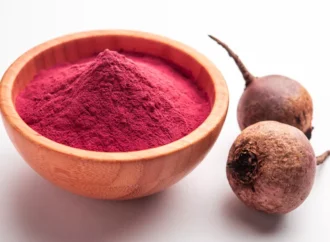As more people embrace plant-based diets, the demand for alternative milk options has skyrocketed. From almond to soy, oat to coconut, plant-based beverages have gained popularity as dairy alternatives. But have you ever wondered about their mineral content? A recent study has delved into this topic, providing valuable insights into the mineral profiles of various plant-based beverages. Join us as we explore the findings and discover the nutritional power hidden within these dairy-free drinks.
Understanding the Importance of Minerals
Minerals play a vital role in maintaining overall health and well-being. They are essential for various bodily functions, including bone health, muscle function, nerve transmission, and immune system support. Consuming an adequate amount of minerals is crucial for optimal physiological functioning.
Analysing Mineral Content in Plant-Based Beverages
In a comprehensive study, researchers analysed the mineral content of different plant-based beverages available in the market. They examined key minerals like calcium, iron, potassium, magnesium, and zinc.
- Calcium: Calcium is vital for bone health and is often associated with dairy products. The study found that certain plant-based beverages, such as fortified almond milk and fortified soy milk, can provide comparable amounts of calcium to cow’s milk.
- Iron: Iron is essential for red blood cell production and oxygen transport. While cow’s milk is not a significant source of iron, plant-based beverages like soy milk and hemp milk can provide varying amounts of this important mineral.
- Potassium: Potassium is crucial for maintaining healthy blood pressure and proper heart function. Many plant-based beverages, including almond milk, oat milk, and coconut milk, contain potassium naturally, contributing to overall dietary intake.
- Magnesium: Magnesium plays a crucial role in enzyme function, energy production, and bone health. The study revealed that plant-based beverages like almond milk and oat milk can be good sources of magnesium, contributing to daily requirements.
- Zinc: Zinc is involved in immune function, wound healing, and DNA synthesis. Some plant-based beverages, such as almond milk and soy milk, were found to contain moderate amounts of zinc.
Choosing Mineral-Rich Plant-Based Beverages
Based on the study’s findings, individuals following plant-based diets or seeking dairy alternatives can make informed choices to ensure adequate mineral intake:
- Read Labels: Check the nutritional information on the packaging to determine the mineral content of plant-based beverages. Look for fortified options that provide essential minerals like calcium and iron.
- Diversity is Key: Incorporate a variety of plant-based beverages into your diet to benefit from different mineral profiles. For example, rotate between almond milk, soy milk, oat milk, and other options to diversify your mineral intake.
- Consider Fortified Options: Fortified plant-based beverages can be an excellent way to ensure you’re getting essential minerals. Look for products that have been fortified with calcium, vitamin D, and other minerals to enhance their nutritional value.
Conclusion
Plant-based beverages offer a refreshing alternative to traditional dairy milk while providing essential nutrients. The study analysing mineral content in these dairy-free options has shed light on their nutritional power. By choosing fortified options and diversifying your plant-based beverage choices, you can meet your mineral needs effectively. Remember, it’s always beneficial to consult with a registered dietitian or healthcare professional for personalised dietary recommendations that suit your specific nutritional requirements. Embrace the mineral-rich goodness of plant-based beverages and enjoy a nourishing journey towards a healthier lifestyle.
 Food Manifest
Food Manifest 



















Leave a Comment
Your email address will not be published. Required fields are marked with *